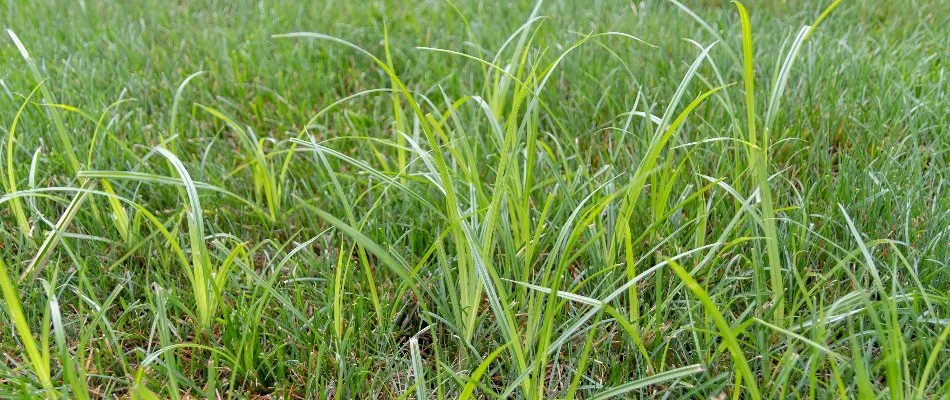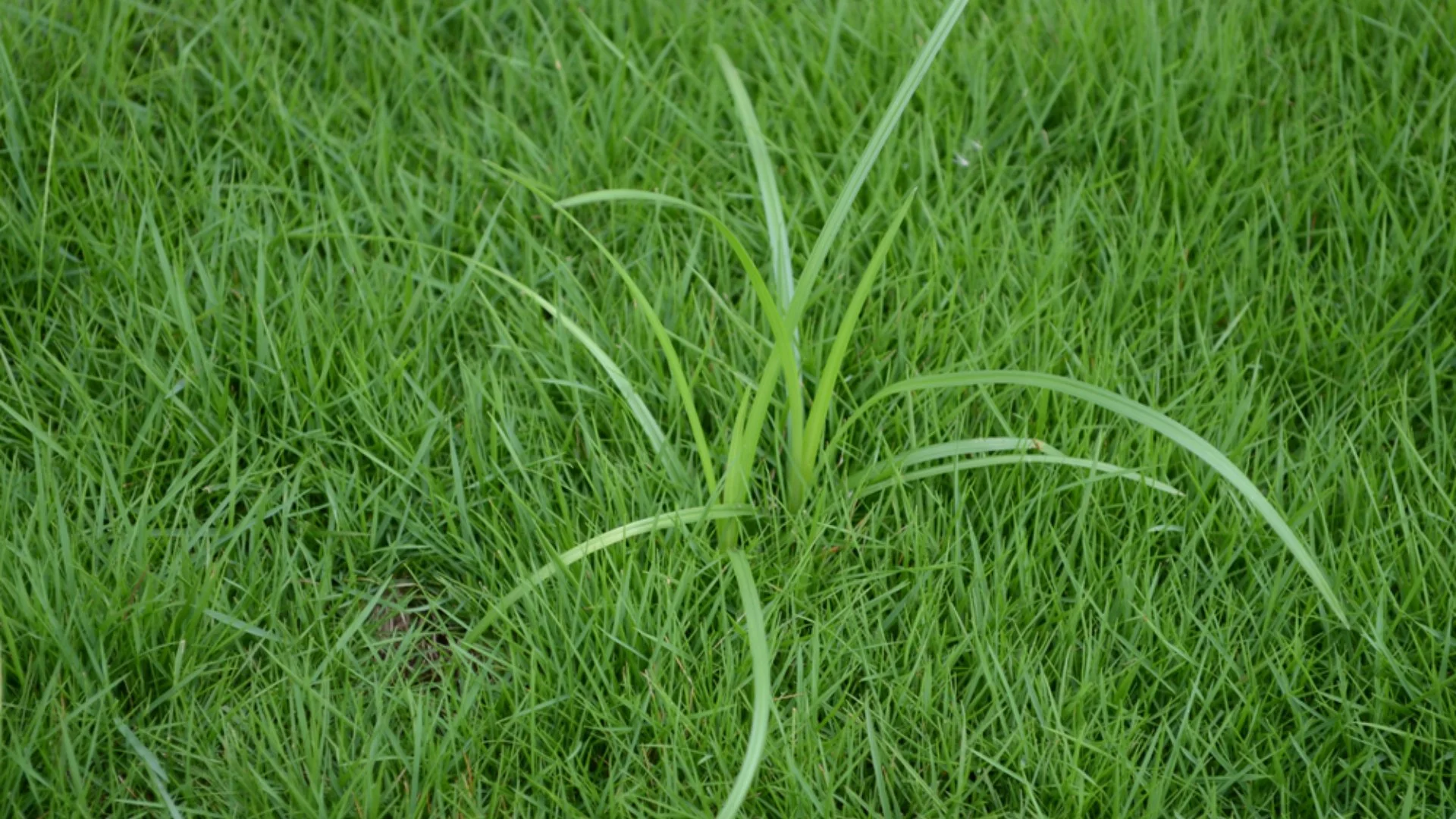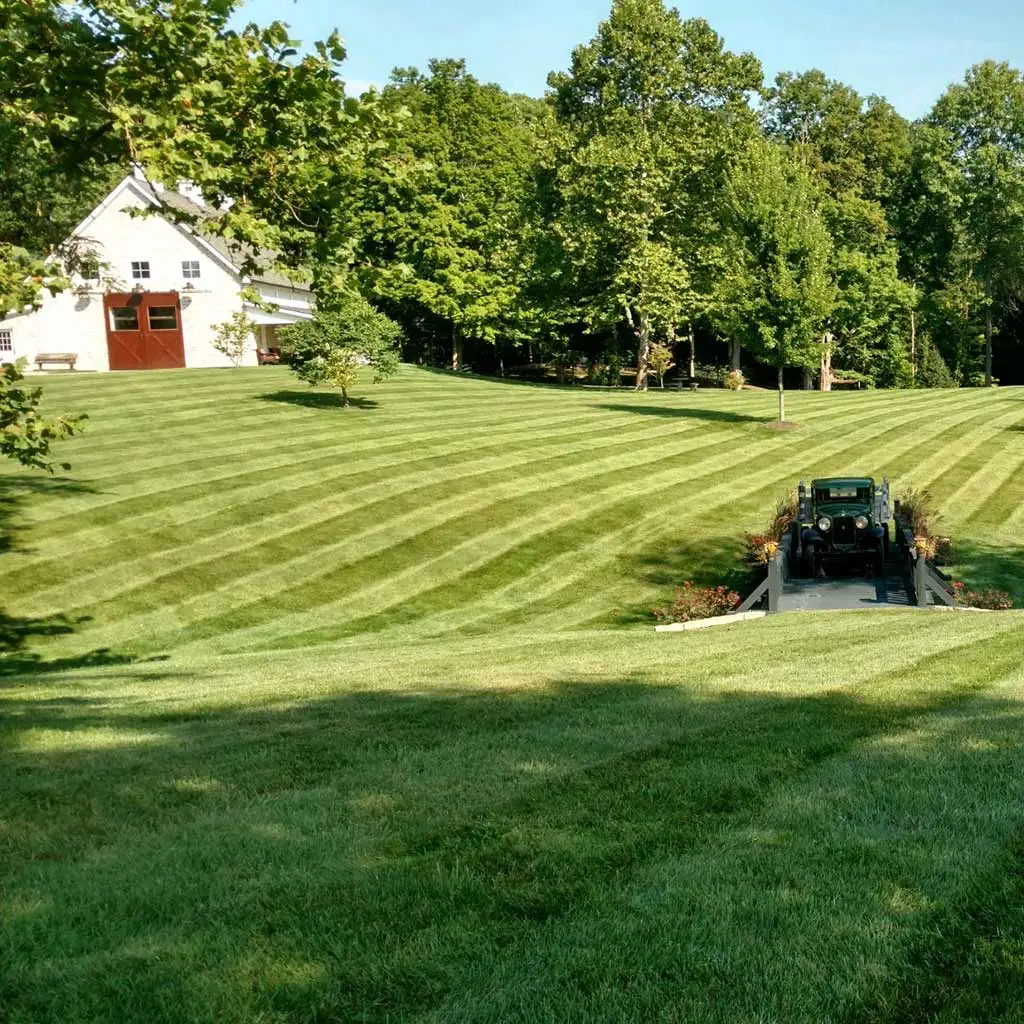Nutsedge is a challenging weed to control, and it's a common problem for property owners in Ohio. Nutsedge is a perennial weed that resembles grass but has triangular stems and produces small, nut-like tubers underground. It can quickly take over your lawn, outcompeting desirable grasses and creating an unsightly appearance. To effectively deal with nutsedge, it's best to contact professionals who can apply post-emergent treatments to eliminate existing weeds and pre-emergent treatments to prevent future growth. Professionals have the expertise to identify and treat nutsedge, ensuring that it doesn't return to your lawn.
What type of weed is nutsedge, and what does it look like?

Nutsedge, also known as nutgrass, is a perennial weed that is commonly found in lawns and gardens. It is a member of the sedge family, which is characterized by its triangular stems and grass-like leaves. Nutsedge is often mistaken for grass, but it can be distinguished by its triangular stems and yellow-green leaves that are thicker and stiffer than grass blades. Nutsedge is a fast-growing weed that can quickly take over a lawn or garden. It spreads through underground tubers, or nutlets, which can remain dormant in the soil for several years before sprouting.
How do you deal with nutsedge?
Dealing with nutsedge can be a challenge, as it is a persistent and difficult-to-control weed. One of the most effective ways to deal with nutsedge is to use post-emergent treatments. These treatments are designed to kill existing nutsedge plants and prevent them from spreading.
Post-emergent treatments are typically applied directly to the nutsedge plants using a sprayer or other application method. These treatments work by penetrating the plant's leaves and stems, killing the plant from the inside out. They are most effective when applied to young, actively growing nutsedge plants.
In addition to post-emergent treatments, you can also use pre-emergent treatments to help prevent nutsedge from taking hold in the future. Pre-emergent treatments work by creating a barrier in the soil that prevents nutsedge seeds from germinating and growing. These treatments are typically applied in the spring, before nutsedge seeds have a chance to sprout.
Contact professionals to help control nutsedge.
If you're dealing with a severe nutsedge infestation, it may be best to contact professionals for help. Lawn care professionals have access to treatments that have been proven to work against nutsedge, and they'll make sure to apply them at the right times for maximum effectiveness.
In addition to applying treatments, professionals can also provide advice on how to prevent nutsedge from taking hold in the future. They can recommend cultural practices, such as proper mowing and watering techniques, that can help keep your lawn healthy and resistant to nutsedge and other weeds.
When choosing a professional lawn care service, be sure to look for a company that has experience dealing with nutsedge and other tough weeds. Ask for references and check online reviews to ensure that the company has a good reputation and a track record of success.
Contact us today to schedule our professional weed control service!
At Hoffmans Lawn & Fertilization, a comprehensive weed control service is offered that can help keep your lawn free of nutsedge and other weeds. Our team of experienced professionals uses a combination of pre-emergent and post-emergent treatments to effectively control nutsedge and other weeds in your lawn.
Our weed control service is offered to residential and commercial properties, as well as HOAs, in Delaware, OH, and surrounding areas such as Lewis Center and Powell. Contact us today at (740) 318-5296 to schedule our professional weed control service and keep your lawn looking its best!




Comments (0)
Thanks for your comment!
Thanks for your feedback! Your comments have been successfully submitted! Please note, all comments require admin approval prior to display.
Error submitting comment!
There is a problem with your comment, please see below and try again.